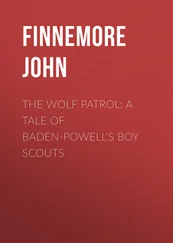Robert Baden-Powell of Gilwell - The Matabele Campaign
Здесь есть возможность читать онлайн «Robert Baden-Powell of Gilwell - The Matabele Campaign» — ознакомительный отрывок электронной книги совершенно бесплатно, а после прочтения отрывка купить полную версию. В некоторых случаях можно слушать аудио, скачать через торрент в формате fb2 и присутствует краткое содержание. Жанр: foreign_antique, foreign_prose, на английском языке. Описание произведения, (предисловие) а так же отзывы посетителей доступны на портале библиотеки ЛибКат.
- Название:The Matabele Campaign
- Автор:
- Жанр:
- Год:неизвестен
- ISBN:нет данных
- Рейтинг книги:5 / 5. Голосов: 1
-
Избранное:Добавить в избранное
- Отзывы:
-
Ваша оценка:
- 100
- 1
- 2
- 3
- 4
- 5
The Matabele Campaign: краткое содержание, описание и аннотация
Предлагаем к чтению аннотацию, описание, краткое содержание или предисловие (зависит от того, что написал сам автор книги «The Matabele Campaign»). Если вы не нашли необходимую информацию о книге — напишите в комментариях, мы постараемся отыскать её.
The Matabele Campaign — читать онлайн ознакомительный отрывок
Ниже представлен текст книги, разбитый по страницам. Система сохранения места последней прочитанной страницы, позволяет с удобством читать онлайн бесплатно книгу «The Matabele Campaign», без необходимости каждый раз заново искать на чём Вы остановились. Поставьте закладку, и сможете в любой момент перейти на страницу, на которой закончили чтение.
Интервал:
Закладка:
The Matopo district is a tract of intricate broken country, containing a jumble of granite–boulder mountains and bush–grown gorges, extending for some sixty miles by twenty. It lies to the south of Buluwayo, its nearest point being about twenty miles from that town. Along its northern edge, in a distance of about twenty–five miles, the six separate impis of the enemy have taken up their positions, with their women and cattle bestowed in neighbouring gorges.
On the principle “ Gutta cavat lapidem non vi sed saepe cadendo ,” we have taken innumerable little peeps at them, and have now “marked down” these impis and their belongings in their separate strongholds, a result that we could never have gained had we gone in strong parties.
Commencing at the western end, near the Mangwe road is the stronghold of the Inugu Mountain (see A in map), a very difficult place to tackle, with its cliffs, caves, and narrow gorges. The impi occupies the mountain, while the women and cattle are in the neighbouring Famona valley.
Five miles N.E. of this is the Chilili valley (B), in which are women and cattle of Babyan’s impi. This impi is located deep in the hills near Isibula’s Kraal on the Kantol Mountain (D); while Babyan himself, and probably the priest of the M’limo, are in a neighbouring valley at (C).
Eighteen miles to the eastward, eight miles south of Dawson’s Store on the Umzingwane River, we come to a bold peak (F), that is occupied by Inyanda’s people, with a valley behind it (E), in which are Sikombo’s women and cattle.
A couple of miles farther west, Sikombo’s impi is camped behind a dome–shaped mountain (G) close to the Tuli road.
On the west side of this road Umlugulu’s impi was stationed when we first began our reconnaissance, but he moved nearer to Sikombo at (H), with Mnyakavula close by on (K). Each impi numbered roughly between one and two thousand men. Their outposts were among the hills along the northern bank of the Umzingwana River. We used to pass between these by night, arriving near the strongholds at daybreak.
The following account, taken from the Daily Chronicle , gives an idea of what one meets with when out on reconnaissance with a patrol: —
“Is it the cooing of doves that wakes me from dreamland to the stern reality of a scrubby blanket and the cold night air of the upland veldt? A plaintive, continuous moan, moan, reminds me that I am at one of our outpost forts beyond Buluwayo, where my bedroom is under the lee of the sail (waggon tilt) which forms the wall of the hospital. And through the flimsy screen there wells the moan of a man who is dying. At last the weary wailing slowly sobs itself away, and the suffering of another mortal is ended. He is at peace. It is only another poor trooper gone. Three years ago he was costing his father so much a year at Eton; he was in the eleven, too – and all for this.
“I roll myself tighter in my dew–chilled rug, and turn to dream afresh of what a curious world I’m in. My rest is short, and time arrives for turning out, as now the moon is rising. A curious scene it is, as here in shadow, there in light, close–packed within the narrow circuit of the fort, the men are lying, muffled, deeply sleeping at their posts. It’s etiquette to move and talk as softly as we are able, and even harsh–voiced sentries drop their challenge to a whisper when there is no doubt of one’s identity. We give our horses a few handfuls of mealies, while we dip our pannikins into the great black ‘billy,’ where there’s always cocoa on the simmer for the guard. And presently we saddle up, the six of us, and lead our horses out; and close behind us follow, in a huddled, shivering file, the four native scouts, guarding among them two Matabele prisoners, handcuffed wrist to wrist, who are to be our guides.
“Down into the deep, dark kloof below the fort, where the air strikes with an icy chill, we cross the shallow spruit, then rise and turn along its farther bank, following a twisting, stony track that leads down the valley. Our horses, though they purposely are left unshod, make a prodigious clatter as they stumble adown the rough, uneven way. From force of habit rather than from fear of listening enemies, we drop our voices to a whisper, and this gives a feeling of alertness and expectancy such as would find us well prepared on an emergency. But we are many miles as yet from their extremest outposts, and, luckily for us, these natives are the soundest of sleepers, so that one might almost in safety pass with clattering horses within a quarter of a mile of them.
“There must be some merit in wrapping up your head when cold, – even at the expense of your nether limbs, – for here in Southern Africa the natives have identically the same way as the men of Northern India have of keeping up their warmth, and as they feel the cold increase, so do they ‘peel’ their legs to find the wherewithal to further muffle up their heads. The keen crispness of the air is in keeping with our spirits, as, all awake, we trek along the hazy veldt. And what a lot of foes one sees when one is looking out for them! Surely that’s a man – yes – no – an upright bush! Ah, there! I saw one move. It is but the sprig of a nearer tree deluding a too–watchful eye; the Kaffirs do not move about as a rule alone at night, while if one is seen, you may be sure there is a party close at hand, and so one needs to keep a very sharp look–out. By going thus at night, we are hoping that we may slip past the Matabele outposts stationed on the hills, and so gain the country that we want to see beyond. Were we to attempt this feat by day, or with a larger party, we should undoubtedly attract attention and have to take a longish circuit. As it is, we make our way for some ten miles along this valley, keeping off the stony path and in the grass, so as to deaden sound as far as possible. High above on either hand the hills loom dark against the stars, and on their summits our enemy’s outposts, we know, are quietly sleeping.
“Now and again we cross a transverse donga or tributary watercourse that runs into our stream, the donga sometimes rising to the dignity of a ravine with steep and broken sides. And when we have found a place, and safely crossed it, we turn and approach it from the other side, so that should we happen later on to be pursued and want to get across it in a hurry, we shall know the landmarks that should guide us to the ‘drift.’ The stars are palpitating now and striving hard to increase their gleam, which means that dawn is at hand. The hills along our left (we are travelling south) loom darker now against the paling sky. Before us, too, we see the hazy blank of the greater valley into which our present valley runs. Suddenly there’s a pause, and all our party halts. Look back! there, high up on a hill, beneath whose shadow we have passed, there sparkles what looks like a ruddy star, which glimmers, bobs, goes out, and then flares anew. It is a watch–fire, and our foes are waking up to warm themselves and to keep their watch. Yonder on another hill sparks up a second fire, and on beyond, another. They are waking up, but all too late; we’ve passed them by, and now are in their ground. Forward! We press on, and ere the day has dawned we have emerged from out the defile into the open land beyond. This is a wide and undulating plain, some five miles across to where it runs up into mountain peaks, the true Matopos. We turn aside and clamber up among some hills just as the sun is rising, until we reach the ashes of a kraal that has been lately burned. The kraal is situated in a cup among the hills, and from the koppies round our native scouts can keep a good look–out in all directions. Here we call a halt for breakfast, and after slackening girths, we go into the cattle kraal to look for corn to give our horses. (The Kaffirs always hide their grain in pits beneath the ground of the ‘cattle kraal’ or yard in which the oxen are herded at night.) Many of the grain–pits have already been opened, but still are left half–filled, and some have not been touched – and then in one – well, we cover up the mouth with a flat stone and logs of wood. The body of a girl lies doubled up within. A few days back a party of some friendlies, men and women, had revisited this kraal, their home, to get some food to take back to their temporary refuge near our fort. The Matabele saw them, and just when they were busy drawing grain, pounced in upon them, assegaing three, – all women, – and driving off the rest as fast as they could go. This was but an everyday incident of outpost life.
Читать дальшеИнтервал:
Закладка:
Похожие книги на «The Matabele Campaign»
Представляем Вашему вниманию похожие книги на «The Matabele Campaign» списком для выбора. Мы отобрали схожую по названию и смыслу литературу в надежде предоставить читателям больше вариантов отыскать новые, интересные, ещё непрочитанные произведения.
Обсуждение, отзывы о книге «The Matabele Campaign» и просто собственные мнения читателей. Оставьте ваши комментарии, напишите, что Вы думаете о произведении, его смысле или главных героях. Укажите что конкретно понравилось, а что нет, и почему Вы так считаете.












